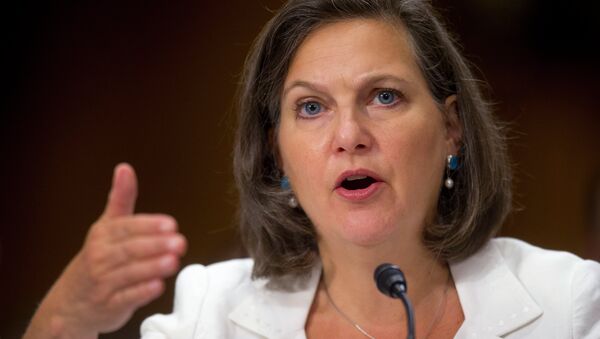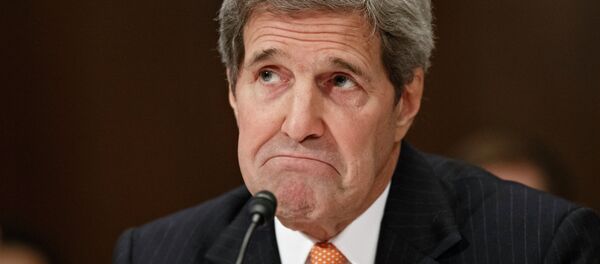Speaking before the US House Foreign Affairs Committee on Tuesday, US Assistant Secretary of European Affairs Victoria Nuland said that the State Department is vastly increasing its budget for battling what she calls “the Kremlin’s pervasive propaganda campaign poisoning minds across Russia, on Russia’s periphery, and across Europe.”
“This year, the [Broadcasting Board of Governors] is committing $23.2 million to Russian-language programming,” Nuland told the committee. “A 49% increase since [fiscal year 2014].”
The State Department is also requesting an additional $20 million, which would “ramp up efforts to counter lies with truth.”
The money will be used for a variety of purposes. According to Nuland’s testimony, part of the funds will be used to support student exchange programs and promote civil watchdog groups. But much of the money will also be used to “counter Russian propaganda through training for Russian-speaking journalists,” as well as providing access to “fact-based” news outlets.
Nuland also claimed that President Obama had consulted with US agencies over arming the Ukrainian military.
“These issues are still under review internally, including the types of equipment…that would respond directly to some of the Russian supply,” Nuland said.
Russia has repeatedly denied its involvement in the Ukrainian conflict.
In addition to the increased BBG budget, Congress has already authorized $10 million to support Russian-language media throughout eastern Europe. This authorization was given through the Ukraine Freedom Support Act.
This isn’t the first time the US has mentioned its expanding investments in propaganda. Last month, US Secretary of State John Kerry asked the House Appropriations Subcommittee for more money to counter what he sees as the negative influence of Russian media.
“Russia Today (sic) can be heard in English, do we have an equivalent that can be heard in Russian?” Kerry said. “It’s a pretty expensive proposition. They are spending huge amounts of money.”
Kerry asked for $639 million to “help our friends in Ukraine, Georgia, and Moldova as they seek to strengthen their democracies, withstand pressure from Russia, and to integrate more closely into Europe.”
Last August, a number of BBG board members “observed that Russian satellite TV channel is an idea worth pursuing.”
A not altogether surprising idea, given that the West has already contributed millions to Russian language programs through Voice of America and Radio Free Europe/Radio Liberty.




